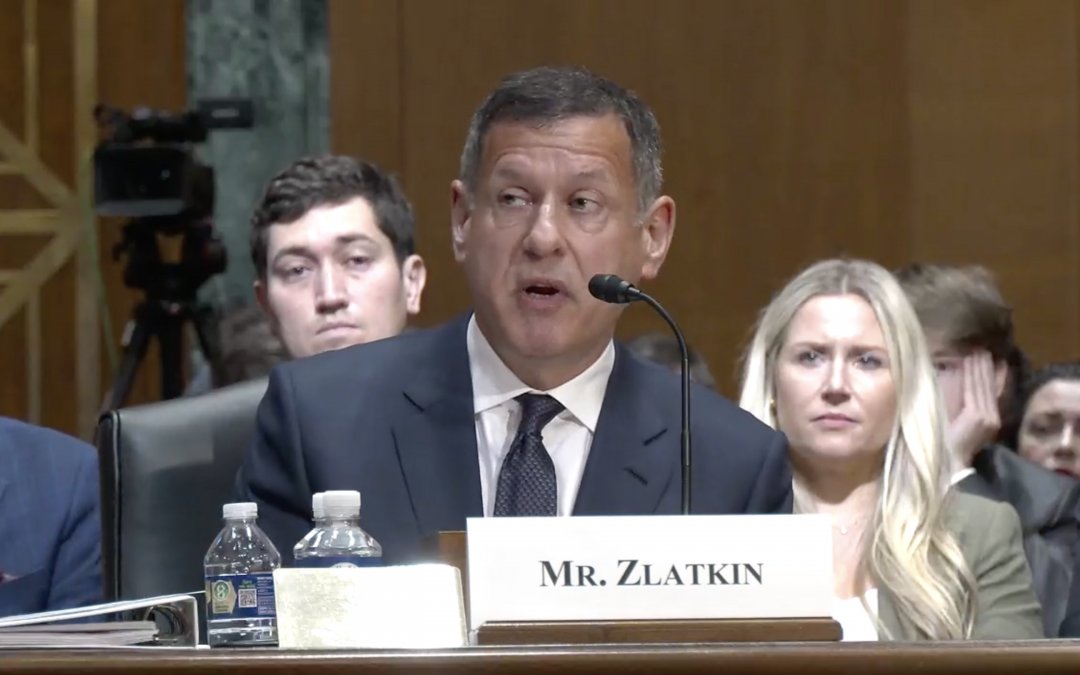WASHINGTON – The Senate Finance Committee debated the fairness and transparency of current cryptocurrency tax policy on Tuesday, seeking to advance President Donald Trump’s agenda of global leadership in the industry.
The hearing proceeded on the first day of the government shutdown, prompting pushback from Democrats who criticized the Republican majority for diverting attention from the funding lapse.
Sen. Elizabeth Warren (D-Mass.) expressed concern that the Committee convened to “discuss anything other than this Republican shutdown and stopping Donald Trump from throwing 15 million people off their health care.”
Warren acknowledged the hearing’s purpose of improving clarity on cryptocurrency tax regulation and plugging “crypto tax loopholes.”
Increased transparency and reform on taxation of digital assets drew bipartisan support at both yesterday’s Finance Committee hearing and the House Ways and Means Oversight Subcommittee’s session held in July.
Jason Somensatto, director of policy at the Coin Center, advocated for “rules that align crypto transactions with comparable activities under the law” as opposed to “special treatment.”
One of the main burdens companies and consumers experience with respect to cryptocurrency is its treatment as property by the Internal Revenue Service (IRS), rather than traditional currency. When a consumer uses cryptocurrency even for small transactions, such as to buy a coffee, it “triggers a complex taxable event,” according to Somensatto.
“This is comparable to tax obligation every time you send an email or a text message,” Somensatto said.
Vice President of Tax at Coinbase Lawrence Zlatkin explained a possible resolution to this matter in his testimony, citing the de minimis exemption. The rule permits the exclusion of low-value transactions from capital gains taxation.
“The Code already includes a de minimis rule for foreign currency,” Zlatkin said. “Digital assets should be treated the same way.”
Somensatto and Zlatkin’s statements on simplifying cryptocurrency transactions via the de minimis rule garnered mixed reactions from lawmakers.
In his opening remarks, Chairman Mike Crapo (R-Idaho) said that “lingering tax uncertainty also makes the U.S. a less attractive place to do business and invest.”
Warren, on the other hand, called into question the fairness of this rule and requested clarification from Andrea S. Kramer, founding member of ASKramer Law, LLC.
“If someone bought $300 worth of gold, or $300 worth of Apple stock, would they be required to report any income they made from those transactions?” She added, “If crypto investors get this de minimis exemption would they pay less in taxes than traditional stockholders for precisely the same kinds of transactions?”
Kramer responded affirmatively to both questions.
“Every one of these special rules tilts in the same direction—and that is for anyone investing in crypto to pay less than the equivalence elsewhere in the financial system,” Warren argued.
In an interview with Medill News Service, Warren reiterated that crypto lobbyists are “not spending money to get the same rules,” but rather, “they’re spending money to get special treatment.”
Annette Nellen, who chairs the Digital Assets Tax Task Force at the American Institute of CPAs, acknowledged the necessity of tracking transactions for the “sake of compliance.” At the same time, she urged Congress and the Treasury to “consider the need to minimize the tax administrative burden and to maximize the amount of clarity for taxpayers, tax practitioners, and the IRS.”
Aligning with President Trump’s priority for the “United States to lead the global digital currency revolution,” Sen. Steve Daines (R-Mont.) emphasized the importance of swift action on clarifying digital asset tax laws and that “guessing will stall growth” of U.S. advancement.
On congressional action regarding cryptocurrency, Securities and Exchange Commission Chair Paul Atkins noted “uncertainty” and “tax efficiencies” in the space but “commends Congress for looking into and addressing these issues.”


